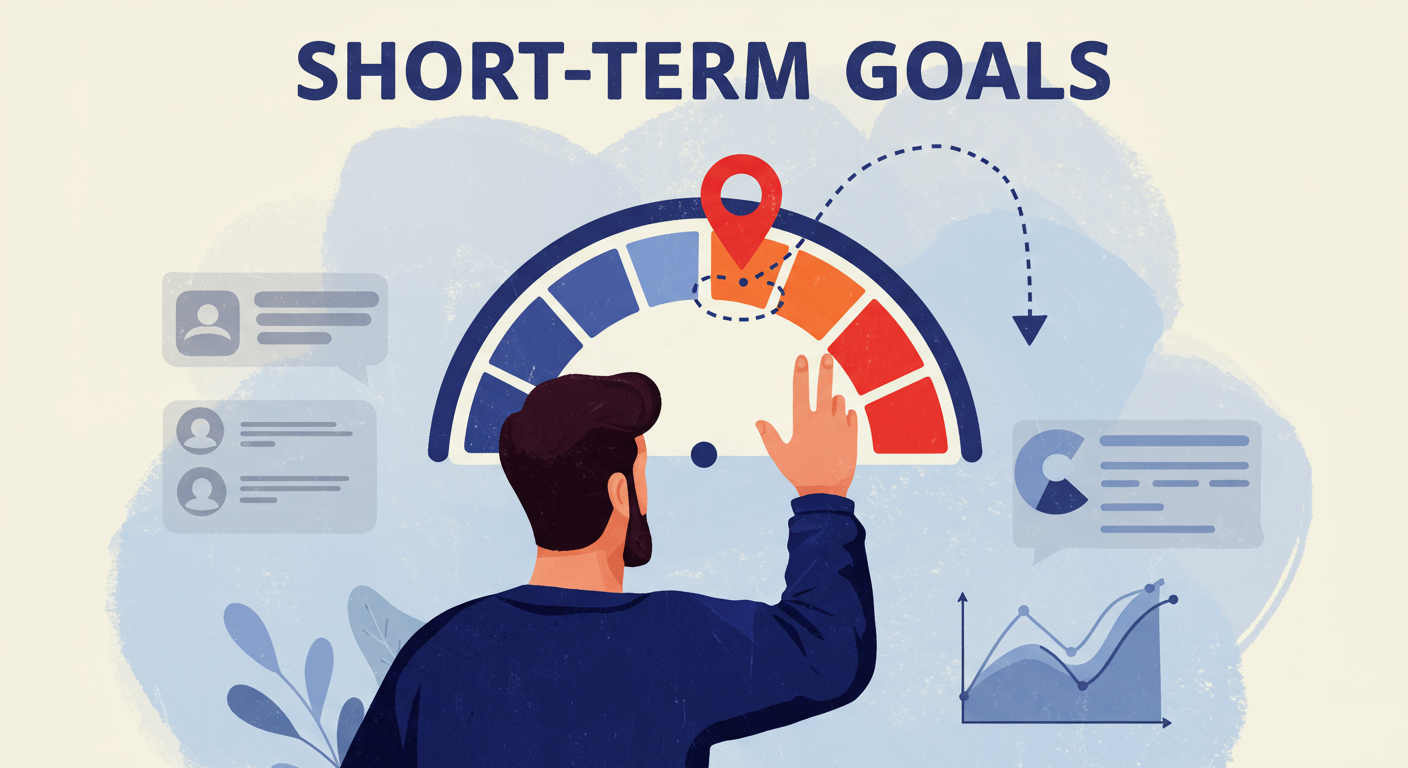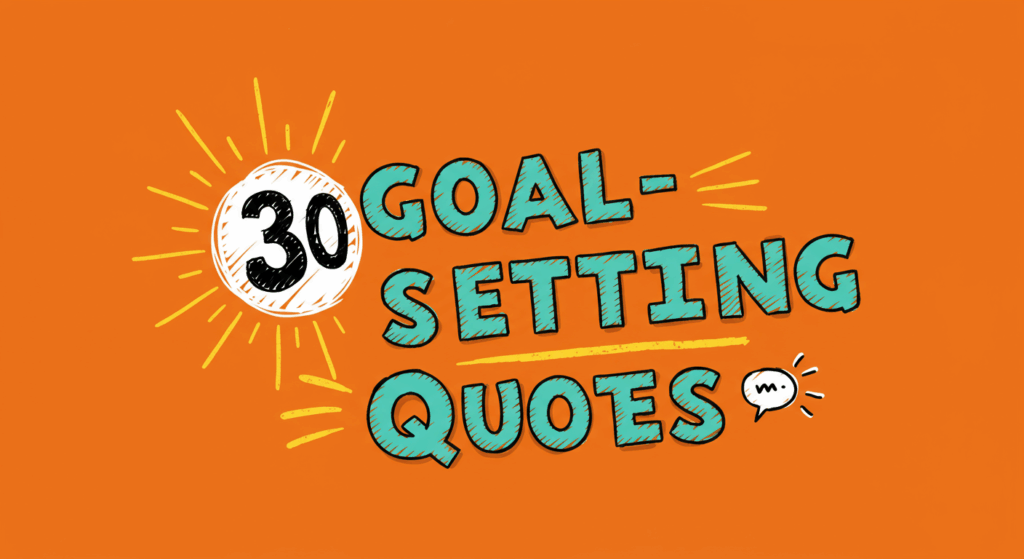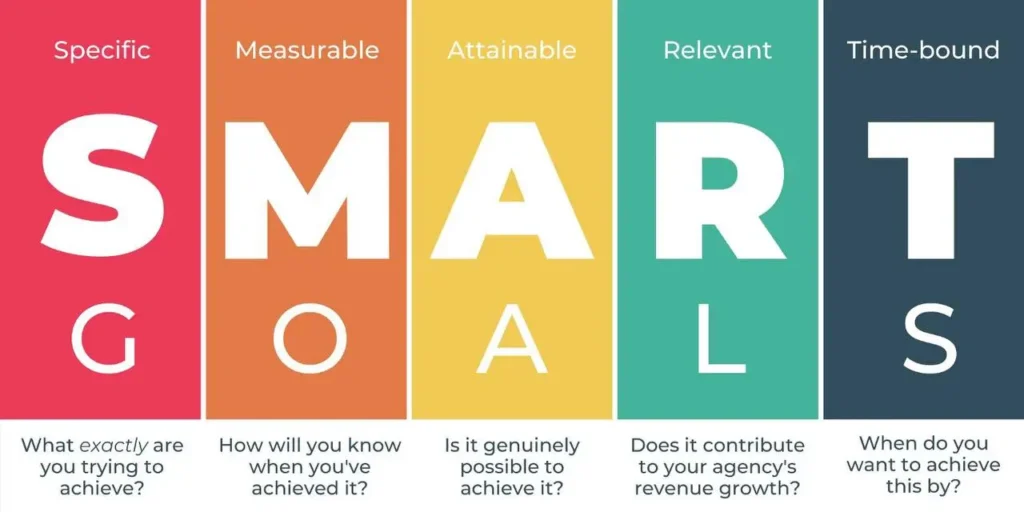Okay, let’s be real for a sec. We all have goals. Whether it’s trying to finally hit the gym consistently, save money for that trip to Japan, or just remember to drink more water (why is staying hydrated harder than swiping on dating apps??), we all want to get better at something. The problem is… goals are kinda tricky. Like, we write them down, maybe even get a little excited, but then two weeks later they’re buried under the pile of life, Netflix shows, and Uber Eats orders.
That’s where SMART goals come in. And then, plot twist, someone decided SMART goals weren’t enough, so they added a couple extra letters and boom: SMARTER goals. But what’s the actual difference between the two? And honestly—does it even matter, or is it just another trendy self-development thing people post about on LinkedIn?
Let’s break it down together in a way that doesn’t feel like a boring lecture.
The OG: What Are SMART Goals?
SMART goals have been around for decades. It’s basically an acronym that helps you set goals that don’t suck. Instead of saying, “I wanna be healthier,” which is vague af, you break it down into something more structured.
SMART stands for:
- Specific – Be clear about what you want. (Not “I’ll get fit,” but “I’ll go to the gym 3x a week.”)
- Measurable – How are you gonna track progress? (Like, being able to squat 50 lbs more than last month.)
- Achievable – Make sure it’s realistic. (No, you probably won’t become an Olympic runner by next month if you’ve barely jogged before.)
- Relevant – Does this goal actually matter to your life? (Running a marathon might be cool, but if you hate running, why??)
- Time-bound – Deadlines. Because without them, goals just float forever in procrastination land.
So, an example of a smart goal would be something like: “I’ll save $500 in the next three months by eating out less and transferring $40 from each paycheck into my savings account.” That’s clear, doable, and has a timeline.
And honestly, SMART goals are solid. They’re like the vanilla latte of goal-setting. Simple, reliable, but sometimes… you want something with a little extra flavor.
Enter SMARTER Goals: Leveling Up
So, what’s up with SMARTER goals? Basically, they take the original SMART formula and add two more letters:
- Evaluate – Check in on your progress. Like, are you on track, or are you low-key avoiding your goal like unopened gym membership emails?
- Readjust – Life happens. Maybe your timeline was too short, or maybe the goal wasn’t working for you. SMARTER goals encourage you to tweak things instead of just giving up.
This is where SMARTER goals shine. Because let’s be honest, we’re human. Plans don’t always go perfectly. Sometimes you realize your “short term goals” weren’t realistic. Sometimes your “long term goal” needs to be broken down into smaller steps. SMARTER goals remind you it’s okay to re-route instead of throwing the whole plan in the trash.
So if a SMART goal is like saying, “I’m gonna finish this Netflix series by Sunday,” a SMARTER goal is like adding, “But if I realize I’m not into it halfway, I’ll switch to a different show and set a new binge deadline.” See? Flexibility.
Why Should You Care About the Difference?
Here’s the deal: SMART goals are about creating structure so you don’t just float in the land of vague dreams. But SMARTER goals take it a step further by acknowledging reality. Like, things change. You change.
Think of it like dating. A SMART goal is swiping with a very specific checklist in mind (they must love dogs, like indie music, and hate pineapple on pizza). A SMARTER goal, though, is being open enough to say, “Hmm, maybe I thought I wanted that, but actually, someone who cooks amazing pasta might be just as great.” It’s about adjusting your expectations instead of ghosting your goals completely.
Short Term vs. Long Term Goals (and How SMARTER Fits In)
Okay, so let’s connect this with real-life planning.
Short term goals are the little wins you can achieve in a short time frame. Think: “I’ll read 10 pages a day this week” or “I’ll apply to 3 jobs this weekend.” They’re like the snack-sized version of goals. Short time goals are perfect for building momentum, because let’s be honest—if you only ever focus on your 5-year plan, you’ll probably burn out before year two.
On the other hand, a long term goal is more like the big vision—starting your own business, buying a house, or maybe running a marathon someday. These require patience (ugh, the hardest thing) and breaking them down into smaller, manageable steps. A long time goal is basically the Netflix series of your life, and short term goals are each episode you need to get through.
SMARTER goals fit beautifully here, because you can set sample short term goals, then evaluate and readjust them as you figure out what actually works. For example, you might have examples of short term goals like “meal prep lunches three times a week.” If you realize week one was a disaster, you can adjust to “prep two times a week and grab a healthy takeout option on the third day.”
Examples in Real Life (Because Theory is Boring)
Sometimes we just need some examples of smart goals and examples of smarter goals to make this click.
- SMART goal example: “I’ll save $1,000 in 5 months by putting away $200 each month.”
- SMARTER goal example: Same as above, but with built-in checkpoints: “I’ll save $1,000 in 5 months by putting away $200 each month. At the end of month two, I’ll evaluate my savings and readjust if my expenses change.”
Or let’s say your self development goal is to read more.
- SMART: “I’ll read 12 books this year.”
- SMARTER: “I’ll read 12 books this year, but if I notice after 3 months I’m not keeping up, I’ll adjust my timeline or switch to audiobooks.”
See the difference? SMART is clear, but SMARTER is forgiving while still holding you accountable.
Self Growth Goals and Personal Development
This is where it gets juicy. Most of us set goals for personal growth because we want to feel like we’re improving, right? Self growth goals like journaling daily, waking up earlier, or learning a new skill sound great on paper. But life isn’t static—sometimes your self development goals shift because you discover new priorities.
For instance, maybe your original self development goal was to meditate every morning. But halfway through the year, you realize what you actually need is a new creative hobby, like painting or playing guitar. A SMARTER approach means you don’t beat yourself up for “failing” at meditation—you just pivot your goals for personal growth in a way that matches your evolving vibe.
Think of SMARTER goals as a mix of discipline + compassion. You stay focused but also cut yourself some slack when needed.
A Few Fun (and Cheesy) Goal Setting Quotes
Because let’s be honest, sometimes a good quote hits harder than any long explanation. Here are a few goal setting sayings and setting goals quotes you might wanna write in your Notes app or slap on your mirror with a sticky note:
- “A goal without a plan is just a wish.”
- “Small progress is still progress.”
- “Don’t let your dreams just be dreams.”
- “Fall seven times, stand up eight.”
Ngl, quotes about setting goals can feel a little cliché sometimes, but when you’re in that slump where everything feels impossible, a cheesy line can be the pep talk you didn’t know you needed.
Smart Target Examples You Can Steal
If you’re the type who just wants some quick inspo, here are a few smart target examples that could work for you:
- Fitness: “I’ll run 2 miles without stopping within 6 weeks by training 3x per week.”
- Finance: “I’ll pay off $300 of my credit card debt in the next 2 months.”
- Career: “I’ll update my LinkedIn and apply to 5 jobs by the end of the month.”
- Self-care: “I’ll do a phone-free walk for 15 minutes every day this week.”
These are all simple, realistic, and give you a clear starting point.
The Honest Truth About Goals
Here’s the thing: goals are not magic. Just writing them down doesn’t mean they’ll happen. But the structure of SMART and SMARTER goals really does help you cut through the mental clutter. Instead of vague hopes like, “I wanna be successful,” you give yourself a roadmap.
But at the same time, don’t let the “rules” stress you out. Goals should push you, not paralyze you. Remember: you can always readjust.
If I’m being real, some of my goals have completely flopped (like that one time I said I’d go vegan for a year… lasted 3 weeks before pizza took me down). But others have worked because I gave myself room to experiment, mess up, and try again. That’s basically the whole point of SMARTER goals.
Final Takeaway
So, SMART goals vs SMARTER goals: what’s the difference? SMART is about clarity, while SMARTER is about clarity + flexibility. Both are useful. Both can help you move forward. The question is: do you want structure only, or structure with room to adapt when life throws curveballs?
If you’re new to goal setting, start with SMART—it’ll give you that solid foundation. But if you’re ready to build resilience, keep yourself accountable, and allow space for growth, go for SMARTER.
At the end of the day, goals are personal. They’re your little promises to yourself. Whether it’s small short term goals like drinking more water or a big long term goal like starting your own business, the key is to just start. Even if it’s messy, even if it’s imperfect—progress is progress.
So, what’s one goal for self development you’ve been putting off? Write it down, make it SMARTER, and go after it. Future you will thank you.
You got this. 💪









